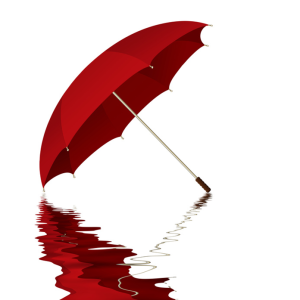I talk to patients every day that complain about debilitating glare when driving at night in the rain. Sometimes rainy glare will keep a person inside when they want to enjoy activities with family and friends.
Why does rain affect our eyes so much and how can we stop it?
Glare 101. Glare, haze, and starbursts are caused by scattered light picked up by our retinas. The question is: What is scattering the light? Are you getting glare from inside your eye (your cornea, lens or floating debris in the vitreous) or from outside influences (your contact lenses, glasses, or windshield)? Let’s look at each of these sources of glare and how to stop them from affecting our vision.
- Glare from your cornea. The cornea is the front surface of the eye and does 2/3 of your focusing. The cornea needs to have a smooth and uniform tear film that moisturizes, sanitizes and brings nutrients to the front surface of the eyes. Sometimes, the cornea can get dry and those dry spots cause discomfort and glare. It can also have some swelling or haze due to injury, diabetes, or corneal dystrophies, which can also cause glare. If your cornea is the source of your glare, try some artificial tears and, if that doesn’t solve the problem, see your eye doctor.
- Glare from your lens. The lens is inside your eye behind the pupil opening. The lens changes shape to focus images up close and far away. Year after year the lens structure and clarity changes and eventually cataracts are formed. Cataracts are dense areas in your lens that block or scatter light, many times causing glare. Your eye doctor will be able to help you know when the cataracts are bothering you enough to see a surgeon.
- Glare from debris in the vitreous. Most of the time, floaters are a normal aging change that occurs in everyone’s eyes. Occasionally, these can be associated with retinal tears or detachment. Sometimes debris in the vitreous can come from a retinal hemorrhage or other reasons and should be diagnosed and treated by your eye doctor. Glare is sometimes caused by light bouncing off these floaters inside your eyes.
- Glare from your contact lenses. If your contacts are old, dry, or the wrong prescription, they can distort or scatter the light that comes into your eyes. A yearly contact lens fitting, regular replacement, and annual cornea check can help with this kind of glare.
- Glare from your glasses. Dirty, out of date glasses can make vision difficult, especially in low light situations. Anti reflective and anti glare coatings have been clinically proven to reduce glare from glasses and enhance night driving vision. Talk to your eye doctor about Crizal(R) coatings to see if they could be the right choice for you.
- Glare from your windshield. Any smudges, dirt, oils, rain or snow can and will distort light and cause glare. Take the time to clean the windshield inside and out when you begin to notice nighttime glare.
- Glare from rain. Rain can act like a prism and refract light, causing glare. Check out this link to see the beauty of raindrops as they refract light. (Raindrop Refraction)
For more information about Reducing glare when driving click here.
Don’t let Night-time Glare keep you locked inside. See how your eye doctor can help reduce glare. http://www.DrMalara.com
